NEWS
Experts Urge Immediate Ban of GMO Foods in Nigeria
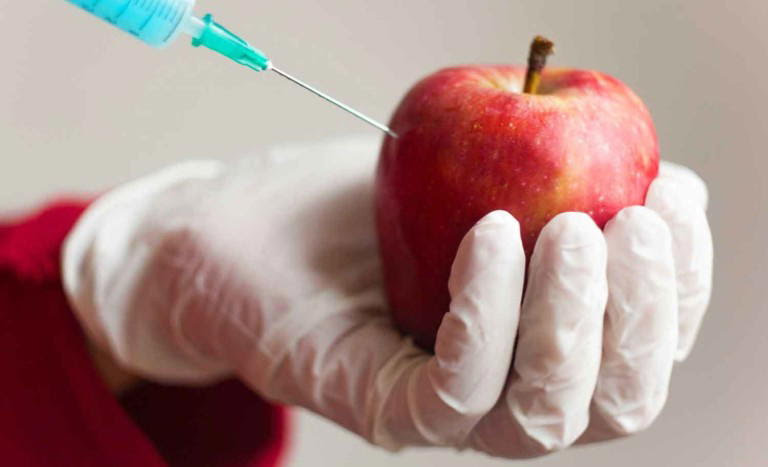
Experts Urge Immediate Ban of GMO Foods in Nigeria
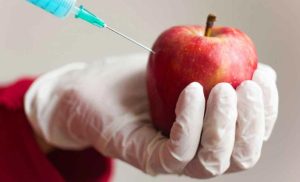
The call was made during a sensitisation workshop held in Abuja, aimed at educating journalists and stakeholders on the dangers of GMO foods and the unregulated use of glyphosate in agriculture.
Health Risks Associated With GMO Foods
Professor Qrisstuberg Amua, Executive Director of the Centre for Food Safety and Agricultural Research (CEFSAR), warned that there is increasing scientific evidence suggesting a correlation between GMOs and several chronic health conditions since their adoption in the 1990s.
According to Prof. Amua, these conditions include:
- Gastrointestinal disorders
- Obesity
- Diabetes
- Heart disease
- Depression
- Autism
- Infertility
- Cancer
- Alzheimer’s disease
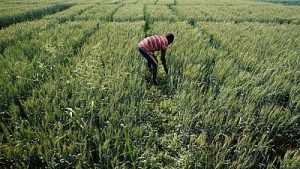
He emphasized that while improved healthcare and longer lifespans might play a role, the steep rise in these illnesses also points to GMOs and glyphosate as possible contributors.
Scientific Studies and Findings
Amua cited several groundbreaking studies, including one by Professor Seralini, who fed rats GMO corn and found they developed cancerous tumors. Though the study faced backlash and temporary removal, it was later republished and remains a critical reference point.
Additionally, Professor Emeritus Don Huber from Purdue University highlighted a link between GMOs and spontaneous abortion and infertility, warning of their use in potential biological threats.
Socioeconomic and Agricultural Threats
The CEFSAR director also raised concerns about the potential domination of Nigerian agriculture by multinational biotech giants such as Monsanto (now Bayer Crop Science), noting that this could displace smallholder farmers and endanger traditional farming systems.
He criticized Nigeria’s Seed Variety Act of 2021, stating it could expose local farmers to lawsuits from global seed corporations for seed sharing or replanting without authorization.
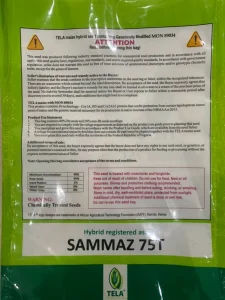
International Precedents and Legal Actions
Amua pointed to countries like Angola, Bhutan, and many in the European Union that have banned GMO products over similar concerns. He also referenced a recent Supreme Court ruling in South Africa that reversed approval for a genetically modified maize variety, emphasizing the need for careful and evidence-based regulation.
“Nigeria must prioritize the health, economy, and food sovereignty of its citizens over foreign corporate interests,” Amua concluded, urging the government to enact an immediate and permanent ban on both GMOs and glyphosate.
GMOs as a National Security Threat
Dr. Segun Adebayo from the Centre for African Policy Research and Advisory echoed the calls, stating that GMOs represent a serious national security issue, not just an agricultural one.
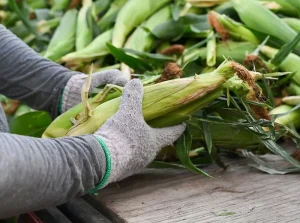
He warned that unregulated GMO imports could open the door to biological sabotage, likening them to anti-crop weapons explored during Cold War conflicts. He questioned Nigeria’s reliance on foreign companies like Bayer for food production, warning of engineered famine and food system manipulation.
“Any country that cannot control its food supply is exposed to manipulation,” Adebayo warned. “The current approval and importation of GMOs without adequate studies and risk assessments is dangerous and must be stopped immediately.”
Health Risks of GMO Foods and Glyphosate
Prof. Qrisstuberg Amua, the Executive Director of the Centre for Food Safety and Agricultural Research (CEFSAR), explained that several peer-reviewed studies have pointed to the correlation between increased use of GMOs and glyphosate and the rise in chronic diseases since the 1990s. These health conditions include gastrointestinal disorders, obesity, infertility, diabetes, autism, heart diseases, and various forms of cancer.
“Research has shown that GM foods could act as endocrine disruptors, trigger oxidative stress, alter the gut microbiome, and damage the Cytochrome P450 enzyme system in the liver,” he said.
Amua cited the controversial but widely discussed study by Professor Gilles-Éric Séralini, where lab rats developed large tumors after consuming GM maize over a prolonged period. He also mentioned Professor Don Huber, a former USDA senior scientist, who raised alarms about GMOs’ role in infertility and spontaneous abortions in animals and possibly humans.
“The danger is not just theoretical. It is real. If we don’t act, we may see Nigeria plunged into a public health crisis decades from now — and by then it would be too late to reverse,” he added.
Environmental and Agricultural Consequences
In addition to health concerns, the experts highlighted the environmental degradation caused by GMO farming, particularly through the overuse of glyphosate-based herbicides, which have been linked to soil degradation, water pollution, and biodiversity loss.
“Glyphosate residues have been found in our rivers, food crops, and even breast milk. Nigeria must not wait until the damage is irreversible,” said Dr. Amina Yusuf, an environmental toxicologist.
There is also growing concern about how GMO agriculture could marginalize small holder farmers. Prof. Amua argued that Nigeria’s Seed Variety Act of 2021 paves the way for multinational companies like Bayer-Monsanto to dominate seed ownership, thereby restricting farmers’ age-old practice of seed saving and sharing.
“When farmers are forced to buy seeds each season from foreign corporations, we lose not just our independence but our agricultural heritage,” he warned.
Food Sovereignty and National Security Risks
Dr. Segun Adebayo of the Centre for African Policy Research and Advisory argued that Nigeria’s food system has become dangerously dependent on multinational corporations. He labeled this dependence a national security threat, warning that GMOs could be exploited as tools for economic sabotage.
“Food is power. If foreign interests control your food system, they control your people,” Adebayo said. “In times of geopolitical conflict, nations can be starved into submission. GMOs could even be manipulated to cause crop failure under specific environmental triggers.”
He further explained how genetically modified crops can be used for anti-crop warfare, with genetically engineered pathogens being developed to sabotage food production in hostile nations. According to him, Nigeria must learn from history and build a resilient, independent food system.
“Without food sovereignty, Nigeria is vulnerable. An unregulated GMO influx makes our food system susceptible to foreign tampering. It is not just about what we eat; it is about who controls our future,” Adebayo warned.
Global Trends Against GMOs
The experts pointed out that many countries have already taken proactive steps to ban or regulate GMOs. Nations like France, Germany, Russia, and India have enforced partial or complete bans on GMO imports and cultivation. Even within Africa, countries such as Angola, Zambia, and Benin have expressed firm resistance to GMO foods.
Most recently, South Africa’s Supreme Court nullified a regulatory approval for GMO maize due to procedural and risk assessment flaws. According to Amua, this decision demonstrates that nations are waking up to the long-term risks of GMO agriculture.
“It is a call to action for Nigeria. We must stop treating food safety as a secondary issue. It must become a matter of national urgency,” Amua said.
Call for Legislative and Policy Action
The experts urged the Nigerian government to immediately conduct an independent national study to determine the extent of GMO presence in the country. They also called for the strengthening of the National Biosafety Management Agency (NBMA) to ensure full transparency and accountability in the regulation of biotechnology in agriculture.
Furthermore, the call for public awareness campaigns and grassroots mobilization was emphasized. Many Nigerians, particularly in rural communities, are unaware that they may be consuming genetically modified foods daily.
“From maize to soybean and even cassava, many of these crops have been genetically modified without consumers’ informed consent. We need clear labeling laws, strict import controls, and a national ban until independent studies prove their safety,” Adebayo concluded.

